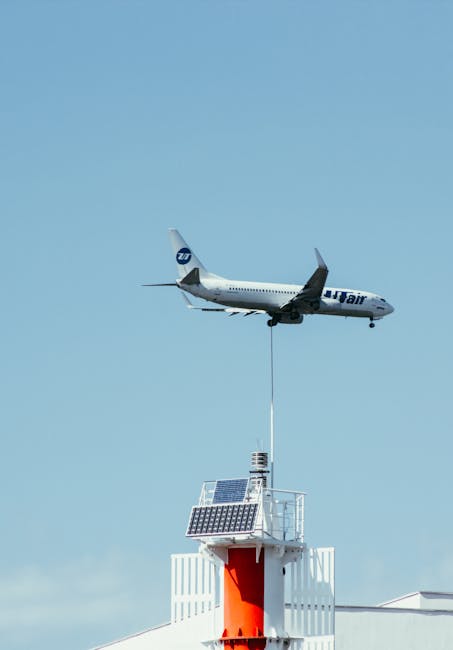Practical and Helpful Tips:
 Navigating the Skies: A Comprehensive Guide to Obtaining a Landing Permit in Africa
Navigating the Skies: A Comprehensive Guide to Obtaining a Landing Permit in Africa
As the world becomes increasingly interconnected, air travel has become an essential mode of transportation for both business and leisure. With Africa’s growing economy and tourism industry, the demand for air travel to and within the continent is on the rise. However, navigating the complex regulatory landscape of African aviation can be a daunting task, especially when it comes to obtaining a landing permit. In this article, we will delve into the world of landing permits in Africa, exploring the requirements, procedures, and regulations that govern this critical aspect of air travel.
0 Picture Gallery: Practical and Helpful Tips:
Understanding the Importance of Landing Permits
A landing permit is a mandatory document that grants permission for an aircraft to land in a foreign country. It is a critical component of international air travel, ensuring that aircraft operators comply with local regulations and safety standards. In Africa, landing permits are typically issued by the civil aviation authority of the country in question, and are usually required for both commercial and private flights. Without a valid landing permit, an aircraft may be denied permission to land, resulting in significant delays and potential safety risks.
Types of Landing Permits
There are several types of landing permits that may be required, depending on the nature of the flight and the country of destination. The most common types of landing permits include:
* Overflight permits: Required for flights that pass through a country’s airspace but do not intend to land.
* Technical stop permits: Required for flights that make a brief stop in a country for refueling or other technical purposes.
* Commercial landing permits: Required for commercial flights that intend to land and discharge passengers or cargo.
* Private flight permits: Required for private flights, including charter and business aviation.
Requirements for Obtaining a Landing Permit
The requirements for obtaining a landing permit vary from country to country, but typically include:
* Aircraft registration and airworthiness certificates
* Proof of insurance and liability coverage
* Pilot licenses and medical certificates
* Flight plans and route information
* Passenger and cargo manifests
* Payment of applicable fees and taxes
In addition to these basic requirements, some countries may require additional documentation, such as security clearances or special permits for sensitive cargo.
The Application Process
The application process for a landing permit typically involves submitting the required documentation to the civil aviation authority of the country in question. This can usually be done through an online portal or by submitting physical documents to the authority’s offices. The application process can take anywhere from a few days to several weeks, depending on the complexity of the request and the workload of the authority.
It is essential to ensure that all documentation is complete and accurate, as any errors or omissions can result in delays or even rejection of the application. In some cases, it may be necessary to engage the services of a local agent or fixer to facilitate the application process and ensure compliance with local regulations.
Challenges and Considerations
Obtaining a landing permit in Africa can be a complex and time-consuming process, especially for operators who are unfamiliar with local regulations and procedures. Some of the common challenges and considerations include:
* Language barriers: Many African countries have official languages that are not widely spoken, making communication and documentation a challenge.
* Bureaucratic red tape: The application process can be slow and cumbersome, with multiple layers of bureaucracy to navigate.
* Corruption and bribery: Unfortunately, corruption and bribery are still prevalent in some African countries, and operators may be tempted to offer bribes to expedite the application process.
* Safety and security concerns: Some African countries have safety and security concerns that must be taken into account when planning a flight.
Best Practices for Obtaining a Landing Permit
To ensure a smooth and successful application process, operators should:
* Research local regulations and requirements thoroughly
* Ensure that all documentation is complete and accurate
* Engage the services of a local agent or fixer if necessary
* Plan ahead and allow sufficient time for the application process
* Be prepared for unexpected delays or challenges
* Stay informed about changing regulations and requirements
Conclusion
Obtaining a landing permit in Africa can be a complex and challenging process, but with careful planning and attention to detail, operators can ensure a smooth and successful flight. By understanding the requirements, procedures, and regulations that govern landing permits, operators can navigate the skies of Africa with confidence and ease. Whether you are a commercial airline, a private pilot, or a cargo operator, a thorough understanding of landing permits is essential for safe and successful air travel in Africa.
Why No One Talks About Anymore
The 10 Commandments of And How Learn More
This post topic: Health & Fitness